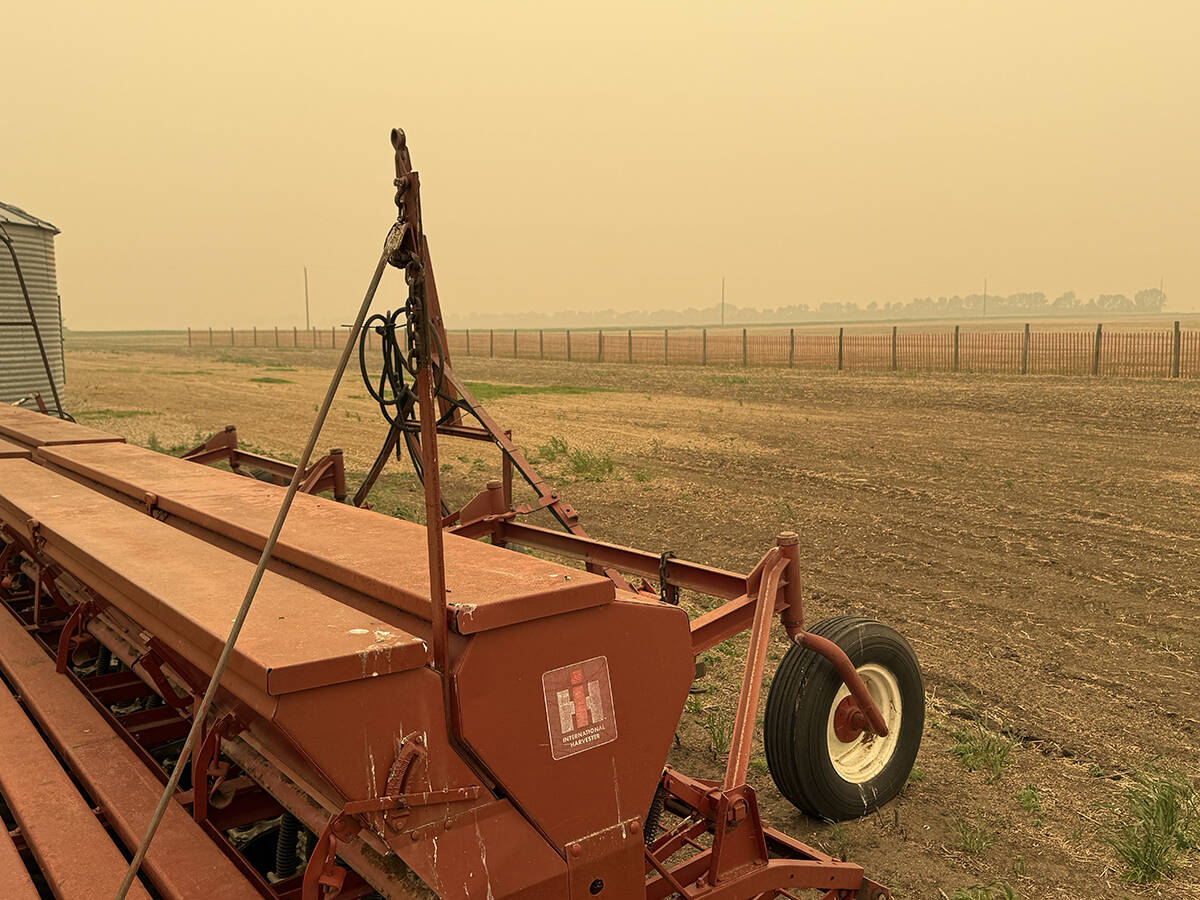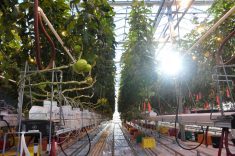Recently announced funding will allow Brandon’s Assiniboine College to triple its greenhouse space and expand research
Glacier FarmMedia – Assiniboine College will triple the greenhouse space at its North Hill campus, allowing it to expand research into new areas of greenhouse production, the college announced in late June.
“It’s really going to lead to significant social, economic, health and environmental benefits,” said Tim Hore, dean of Assiniboine’s Russ Edwards School of Agriculture and Environment.
ACC announced on June 26 that it had received $1 million each from the Canada Foundation for Innovation and Research Manitoba to support the expansion.
Read Also

Wildfires have unexpected upside this year
One farmer feels smoke from nearby wildfires shrouded the July skies and protected his crop from the sun’s burning rays, resulting in more seeds per pod and more pods per plant.
The North Hill campus greenhouse complex, opened in 2013, is now 3,300 sq. feet. Several programs, including horticultural production, sustainable food systems and culinary arts, use the greenhouse and adjacent grow plots for research, lab work and other learning activities.
“There could be opportunities to expand the number of students that go through those programs,” Hore said.
Assiniboine’s plans include research to bolster greenhouse production in Indigenous and northern communities, developing production methods for cultural foods like okra and sweet potatoes and continued research into reducing peat reliance in greenhouse production, Hore said.
It may also evaluate other “climate positive technologies” for year-round production, he added.
Assiniboine has prepared a request for quotes and plans to start construction this fall, said Hore. The expanded facility could begin operation next spring.
Horticulture and greenhouse production are among several ag-related programs on the expansion track. In January, the provincial and federal governments earmarked $1.3 million over five years for Assiniboine’s horticulture programming.
That announcement spotlighted the college’s work on passive climate control for greenhouses, high tunnel production and crop resilience.
The college has also expanded horticulture programs into the Parkland. Assiniboine signed a memorandum of understanding with Dauphin-area greenhouse firm Vermillion Growers in 2022 to support research, and partnered with the company on a pilot project supporting Indigenous industry participation in 2023.
At the time of the January funding announcement, the college hoped to expand its horticulture offerings at its Dauphin campus this fall.
















